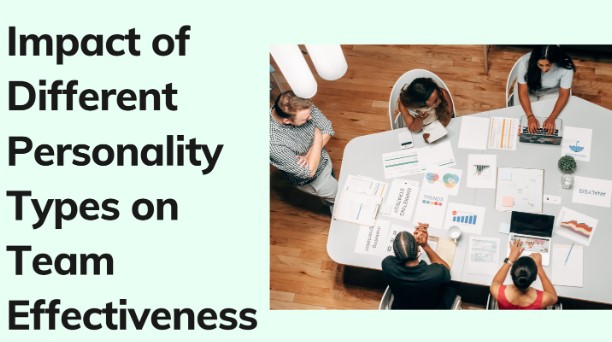
Employee Benefits Program
28 October, 2022
Patron Career Staffing firmly believes in adopting a tailored approach to meet temporary and permanent recruitment needs. We safeguard the interest of our clients by finding such workers who are knowledgeable and reliable.
About UsNeed help? Make a Call
32 Dundas Street East Unit A, L5A1W2

In today’s expanding business world, HR professionals encounter multifarious people with a facade of personalities, cultures, backgrounds, and experiences. Two people who share a similar designation in a company may not share the same perspectives and emotional intelligence and that makes perfect sense.
Perhaps, the arduous task of forming fully functional teams and getting them to work together for a common objective can take a toll on business leaders. This is because the way people think, behave and perceive can play a vital role in determining the organizational success of any enterprise.
The ways of the business world may be mysterious but there is one thing that is better known- and that is best teams are all about a mix of personalities rather than just human skills!
Below, we explore the linkage between personality and organizational behavior and how it affects the success of any business entity.
The word has its origin in the Latin root ‘persona’ which means a “mask”. Rhetorically, personality is the impression we make on others; the raiment or mask we present to the world.
The psychological understanding is that a person’s behavior is made up of several internal factors, and as a result, such temperament is uniquely different from the behavior other people would display when put in similar situations. Personality is thus an internal process of the psychophysical system that guides behavior.
In simpler terms, our personality is a dynamic process; our recurring behavioral patterns, sentiments, beliefs, and emotions and an overall combination of traits help portray the kind of person we are to the outside world. It is a distinctive process that encompasses how someone behaves, reacts, or interacts when put in other people’s companionship, during his life.
Now that we have a fair idea about what personality means, we can move forward with learning what impact personality has on teams and overall group performance.
Personality has both internal and external factors- well, the persona you dwell on over time isn’t just influenced by your surroundings or your social clique. It is a cumulative result of various environmental/ external factors, say- family background, likes dislike stereotypes; cultural environment; social and school environment because each one of these helps to shape your personality. Internal factors that influence one’s personality are neurotransmitters, synaptic plasticity, and genes.
An individual's personality is generally stable- consistency is the quintessential element of personality since it represents a stable progression of one’s conduct, thoughts, and emotions. So usually people tend to behave in the same or similar ways in different situations.
An individual's personality is both inherited as well as shaped by the environment- there have been contradicting views regarding whether personality is genetic. Studies have proved that human personality and behaviors are guided by both- our genetics and our environment. Some personality traits could be innate, that is we may be born with them, but others still can be developed as we experience life.
One can easily differentiate A from B because they have different dispositions and personalities, it is always a unique and specific set of characteristics, needs, attitudes, emotions, interests, and cognitive processes.
Personality is as important as skills. With the right combination of the two, one can benefit from diversity and build stronger relationships among their employees.
For healthy team dynamics, all personality traits of each individual must be well established to assess their suitability for teamwork. So if you know someone who is high on self-esteem and Machiavellianism, you’ll put them together with like-minded people. But it is not always guaranteed that they will get along the way you would like. But to best avoid conflicts, strive for a balance of personalities and gain sufficient knowledge on different personality types. Numerous theories and questionnaires can aid business leaders to engage effectively with their employees. One of the best methods is the Big Five personality traits model, which we have explained to you below.
In the pursuit of understanding and measuring personality, the big five concepts explicate an individual’s personality through 5 factors, tot up by the acronym OCEAN:

Openness to experience- this factor indicates a person's eagerness to devolve into new and varied experiences. The workers on the higher end are intelligent, perceptive, and analytical. The ones on the lower end represent traits of being spontaneous and preferring routine.
Conscientiousness- having a high score on this factor implies being responsible, organized, reliable, and careful. Having a low score means that a person is impulsive and unscrupulous.
Extroversion- Extroversion- when it comes to building a team, it is quite important to assess team members' personalities to know if they are reserved or fun-loving. Extraversion reflects a person’s tendency to be chatty, energetic, and sociable. Low scorers display traits such as introversion, and reflection, and they prefer solitude. They don’t like to be the center of attention and must be assigned roles accordingly.
Agreeableness- it means how people bond with others, their interactions, and their feelings for other people. Facets of a high scorer would include being warm, kind, modest, altruistic, and straightforward. People with low agreeableness are skeptical and demanding and have little tendency to go along with others.
Neuroticism- the last factor that depicts someone's inclination towards sensitivity and propensity to experiment with negative emotions. High scorers would likewise be vulnerable, easily gets anxious, and hostile when experiencing unpleasant emotions. However, those who score low on neuroticism are resilient, calm, and emotionally stable. They are less moody and anxious.
The key to ensuring a successful team is creating self-awareness among its members. When each employee is conscious of his actions, behavioral styles, and personality type, they might as well understand their impact on others. Conflict is natural but can be easily avoided if all team members recognize their differences and build positive perspectives and approaches.
Organizations also can use personality profiling and break down individuals' personalities on various factors such as energy, will, affection, control and emotionality. This way you can comprehend unique differences amongst your core team members to create a culture that allows your company to strive.

The performance regime of every team depends not just on their abilities and capacities. It is equally affected by personality types as discussed above. Diversity in terms of personality is healthy but also challenging. You would want to build a team who are collectively focused on a mission and are aware of where their blind spots are.
Remember, that a high-performing team is a group of many hands and one mind. Work on the details mentioned above and try to respect differences because they will strengthen the teams by contributing to new ways of doing things.
